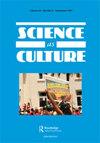Judging Post-Controversy Expertise: Judicial Discretion and Scientific Marginalisation in the Courtroom
IF 2.5
3区 哲学
Q1 CULTURAL STUDIES
引用次数: 2
Abstract
ABSTRACT The sexual assault trial of R v Hartman included evidence from a sleep expert who found himself increasingly marginalised within the scientific community. Marginalisation takes place following a scientific controversy, when those considered to be on the losing side find it increasingly difficult to be heard by the community, and in particular, their ideas are removed from core texts in the field. Given a marginalised expert's ambiguous status, and a scientific knowledge deficit on the part of legal actors, on what grounds does a judge base their decision around the evidential value of their testimony? An analysis of the judge's decision in the trial indicates that she evaluated the expert's evidence by employing a version of a socio-technical review that included expectations of scientific rigour based on mechanical objectivity and procedural correctness. Drawing upon these processes and expectations of sound science, the judge had little difficulty evaluating the expert's evidence and finding it unsafe. In particular, she drew attention to the expert's mobilisation of a conspiratorial discursive style, a product of his marginalisation. This supports certain STS claims that legal actors already have tools for evaluating appropriate expertise, and these continue to be the cornerstone of judicial decision-making around expert testimony, even in highly ambiguous situations like post-controversy science.论争议后鉴定:法院的司法自由裁量与科学边缘化
摘要R诉Hartman性侵案的审判包括一位睡眠专家的证据,他发现自己在科学界越来越被边缘化。边缘化发生在一场科学争议之后,当那些被认为是失败者的人发现越来越难以被社区听到,尤其是他们的想法被从该领域的核心文本中删除时。考虑到一个被边缘化的专家的模糊地位,以及法律行为者的科学知识不足,法官基于什么理由根据他们证词的证据价值做出决定?对法官在审判中的决定的分析表明,她通过使用社会技术审查的版本来评估专家的证据,其中包括基于机械客观性和程序正确性的科学严谨性的期望。根据这些过程和对可靠科学的期望,法官很容易评估专家的证据并发现其不安全。她特别提请注意这位专家对阴谋论话语风格的动员,这是他被边缘化的产物。这支持了STS的某些说法,即法律行为者已经有了评估适当专业知识的工具,这些工具仍然是围绕专家证词做出司法决策的基石,即使在争议后科学等高度模糊的情况下也是如此。
本文章由计算机程序翻译,如有差异,请以英文原文为准。
求助全文
约1分钟内获得全文
求助全文
来源期刊

Science As Culture
Multiple-
CiteScore
5.20
自引率
3.80%
发文量
28
期刊介绍:
Our culture is a scientific one, defining what is natural and what is rational. Its values can be seen in what are sought out as facts and made as artefacts, what are designed as processes and products, and what are forged as weapons and filmed as wonders. In our daily experience, power is exercised through expertise, e.g. in science, technology and medicine. Science as Culture explores how all these shape the values which contend for influence over the wider society. Science mediates our cultural experience. It increasingly defines what it is to be a person, through genetics, medicine and information technology. Its values get embodied and naturalized in concepts, techniques, research priorities, gadgets and advertising. Many films, artworks and novels express popular concerns about these developments. In a society where icons of progress are drawn from science, technology and medicine, they are either celebrated or demonised. Often their progress is feared as ’unnatural’, while their critics are labelled ’irrational’. Public concerns are rebuffed by ostensibly value-neutral experts and positivist polemics. Yet the culture of science is open to study like any other culture. Cultural studies analyses the role of expertise throughout society. Many journals address the history, philosophy and social studies of science, its popularisation, and the public understanding of society.
 求助内容:
求助内容: 应助结果提醒方式:
应助结果提醒方式:


